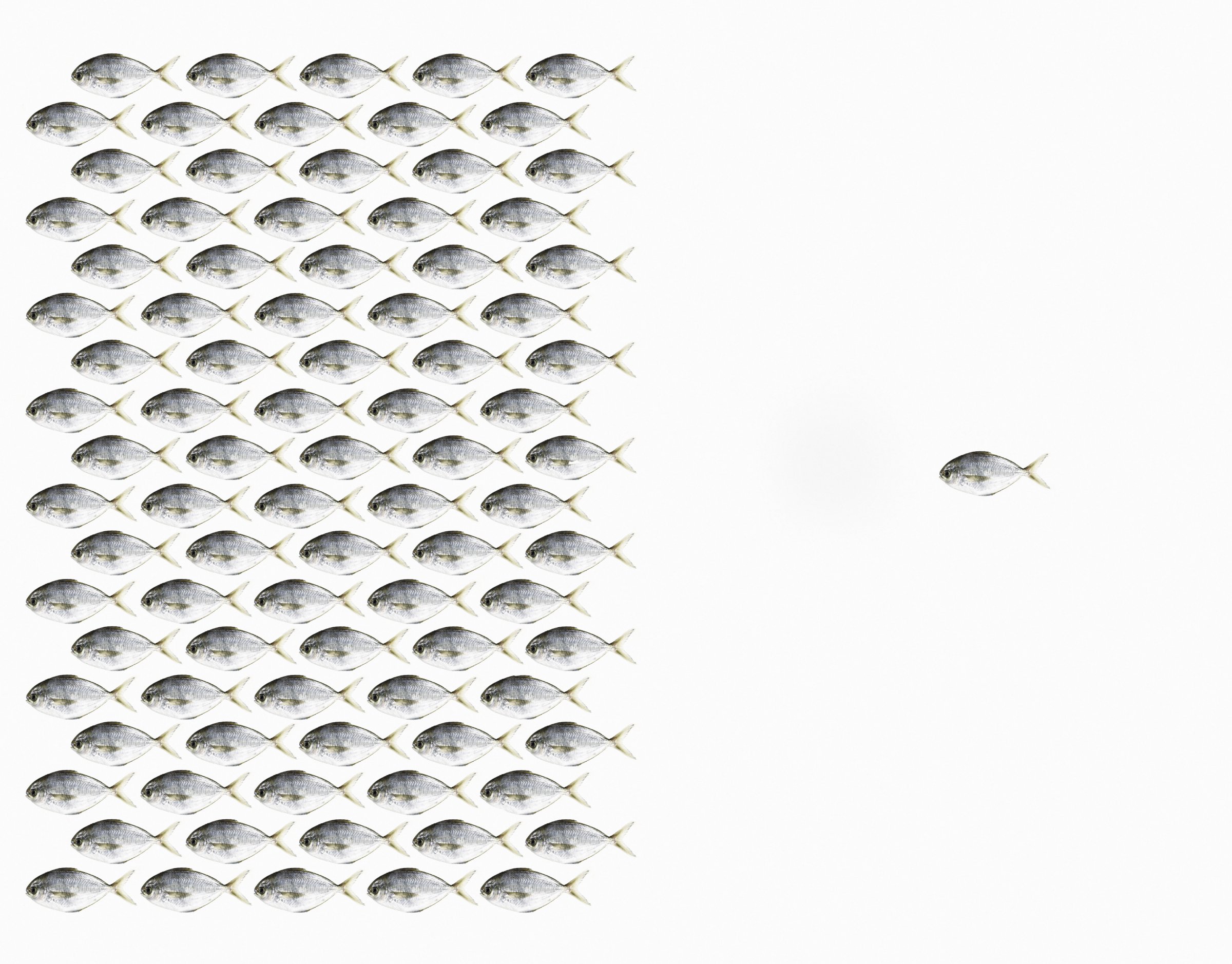
Change in any form is very difficult for people to accept, let alone to embrace. Why? Well, the old adage holds true: Humans are creatures of habit. The vast majority of our day-to-day behaviors can be categorized into a series of replicable habits, which we’ve developed through a combination of genetic predisposition and prior experience.
Most of our habits are innocuous, designed to help us be more efficient and comfortably exist in society: Things such as brushing our teeth, going to the gym or checking social media regularly to stay up-to-date on news (and the actions of friends and acquaintances). However, there are other, more psychologically complex habits that develop as a way to protect ourselves, such as dealing with traumatic experiences through humor, becoming distant from strong romantic relationships to avoid being hurt and staying in the same stable job rather than taking on more responsibility and a risk of failure.
What’s wrong with maintaining habits to protect ourselves from failure, pain or discomfort? Clearly, they can serve a meaningful role in our lives as a way to stay grounded during times of uncertainty. However, over time, they can also impede the mental processing of anxiety and prevent growth and personal success.
Over the past couple of years, I’ve extensively studied the concept of success and met with many individuals who have achieved it not only in the traditional sense (money and power) but also through deeper, more meaningful measures, such as self-understanding, resilience and growth.
Through this research, I’ve discovered that, surprisingly, good habits are often the biggest inhibitor to personal success. Why? We can all agree that bad habits like sleeping in every day or partying too much prevent success. What makes good habits so dangerous is that, because they serve a positive function, recognizing them as a problem or obstacle is extremely challenging. Unfortunately, we outgrow even good habits sometimes, and in order to experience continued personal growth, we have to shed them in favor of new, more productive ones.
Here’s an example to help explain this phenomenon: When the Model-T Ford was introduced, it was a brilliant and revolutionary innovation. If society had stopped there and never retired it in favor of newer models, we wouldn’t have the power, precision and safety that come with modern vehicles. We don’t look back at the Model-T Ford as a failure or obstacle; in fact, we celebrate its place as a historic benchmark. But we also recognize the need to do things differently. The same can be true of our personal habits.
Read more: Andy Warhol’s Lessons for Success
Perhaps the hardest part of this whole idea is understanding when to let go of habits that have previously served us well. Here are three ways to know when it’s time to move on:
1. You feel ‘stuck’ in your life
Habituation is a common psychological term used to describe how humans become used to our circumstances. Over time, we all get used to our socioeconomic status, our diet, our weekend routines. That’s habituation, and it’s usually comforting. However, many people describe the feeling of being stuck in their lives, which is a signal that the circumstances they’ve habituated to are no longer serving them well. If this feeling describes your situation, it may be time to change some element of your routine or refocus your direction entirely to a new goal.
Read more: ‘How I Finally Learned to Love My Body’
2. You experience the same failure over and over again
Failure is an enormous contributor to success. However, while failing once can be a wonderful learning experience, failing a second time for the same reason can be a sign of trouble. If you are attempting to start your own business and keep receiving the same negative feedback from investors or customers or partners, it may be time to reevaluate the way you organize your life. For example, perhaps doing everything on your own helped you to get to a place where you could open a business but is now preventing you from scaling it to achieve greater success.
3. You have trouble defining your personal wins
What makes you successful? That’s a tricky question, of course, but for people with productive behaviors in their lives, the answer is far clearer. These individuals also tend to define success beyond wealth and power. Instead, they do it through meaning, helping others or another less quantifiable metric.
Read more: 7 TED Talks That Will Make You a Better Leader
What habits do you think might be preventing your personal growth? Change is never easy, but by making small iterative changes in your lifestyle and habits, you can slowly overhaul your career, relationships and life to be more productive and satisfying.
Bill Connolly is a marketer, speaker and comedian and the author of two books, including The Success Disconnect: Why The Smartest People Choose Meaning Over Money.
More Must-Reads from TIME
- Cybersecurity Experts Are Sounding the Alarm on DOGE
- Meet the 2025 Women of the Year
- The Harsh Truth About Disability Inclusion
- Why Do More Young Adults Have Cancer?
- Colman Domingo Leads With Radical Love
- How to Get Better at Doing Things Alone
- Michelle Zauner Stares Down the Darkness
Contact us at letters@time.com